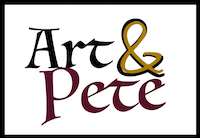
Posted
September 01, 2019 05:54:49
Related Story:
Abandoned cars in desert turned into ‘ghostly’ works of art
Related Story:
Why the APY Lands dominate the Australian art scene
Zaachariaha Fielding was eight years old when he arrived in the ancestral country of his grandfather in the Anangu Pitjantjatjara Yankunytjatjara (APY) Lands.
It was 1998, and he was accompanying his father, artist Robert Fielding, and the rest of the family from Port Augusta in South Australia to the small, tight-knit community of Mimili, which rests just below the Everard Ranges, approximately 645 kilometres south of Alice Springs.
It was a move that proved formative in not just his early life, but his later creative output as lead vocalist and one half of electronic music duo Electric Fields.

Photo:
Mimili is one of six main homeland communities in the APY Lands. (Supplied: Chris Tangey)
This reconnection to country is explored in the new short documentary Electric Mimili, by filmmakers Isaac Cohen Lindsay (director) and Sierra Schrader (producer), which follows Zaachariaha back home to visit his family and some of the places that shaped him.
One of these is Victory Well: a place of sacred significance related to Maku Tjukurpa (witchetty grub songline), where corroborees are performed and dreaming stories are told.
It was also Zaachariah’s first stage as a performer.
“When I was growing up, all my grandmothers and grandfathers, they’ll be just about a hundred sitting there, singing in those old songs, like, Ngalpudo and Nindaka and Inma Wurro, all of those songs,” he says in a scene from the documentary.
“This is where a lot of my manifestation and feelings come from.”
Early in Electric Mimili, Zaachariaha’s father Robert talks about the benefits of bringing his family back to Mimili.
“By bringing your children back [to country], they grow up with restoration of Tjukurpa, of Wunka, of Milmilpa, of languages,” he says.
“They can communicate in both English and Anangu languages of who they are and where they come from.”
For the young Zaachariaha, the immersion in culture was brief but powerful.

Photo:
Zaachariaha takes every opportunity to return home to Mimili. (Supplied: Sequoia Productions)
At 13, he left Mimili for boarding school in Adelaide, followed by a brief stint at the Centre for Aboriginal Studies in Music at Adelaide University.
He auditioned for The X Factor Australia in 2011 (aged 19) and competed in the grand final of The Voice in 2014 (with Kristal West, as the duo ZK).
ZK performing on The Voice Australia 2014 YouTube video
The following year, Zaachariaha and keyboardist and co-producer Michael Ross started writing music together as Electric Fields.
Their songs fuse soul with 90s electro pop, and feature English, Pitjantjatjara and Yankunytjatjara lyrics.
Zaachariaha has said previously that when they first started collaborating in the recording studio “I started chanting and singing Anangu language and it just fit”.
“Anangu can move spirit,” he says.
“I watched all of our elders and our nunkries from our community do that with spirit and energy. When I’m on the stage that’s what I’m doing.”
‘This is my father’s country’
The move back to Mimili was a decision that Zaachariaha’s father Robert did not make lightly.
“Y’know I don’t know this country, but I know this is my father’s country,” Robert says in a scene from Electric Mimili
His father, Yankunytjatjara man Bruce Fielding, didn’t get the chance to grow up in Mimili.
At age three, Bruce was extricated by force from family and country, and placed at the institution Colebrook Home in Quorn, South Australia.
“My father was a descendant of Stolen Generation, he was removed from his mother in 1931. So many from this community grew in the same environment as my father,” says Robert.
Bruce Fielding never returned to Mimili.
His son and grandson have used art to reflect on this family history.
Art for healing
Robert’s art practice was seeded in Mimili.
In 2005, he started helping out at the Anangu owned and operated arts centre Mimili Maku Arts, a place that artist and senior Pitjantjatjara woman Tuppy Goodwin, the centre’s director, describes as the community’s “cultural heartbeat” and “a place for intergenerational exchange and learning”.
There he developed skills as a painter, going on to incorporate print-making, photography, film and installation into his practice.
He is a two-time winner at the Telstra National Aboriginal & Torres Strait Islander Art Awards (NATSIAAs).
Speaking to the ABC about his 2017 NATSIAA-winning artwork Mikali Kutju — Pitjantjatjara for “one blood” — Robert said it was part of his embrace of forgiveness, as his father forgave those who removed him from his family as part of the Stolen Generation.
Zaachariaha has also taken inspiration from his grandfather’s story, for Electric Fields’ 12-minute composition titled Iti — the Pitjantjatjara word for baby.
“The energy is on his mother’s behalf — speaking for her — what it would have been like for her to hunt and look for this child, and really jog her way to find where this kid is,” Zaachariaha told ABC RN’s Awaye! in 2017.
“I really wanted to tap into that [story] in a positive way and a beautiful way.”
Zaachariaha Fielding sharing some words in Pitjantjatjara language from South Australia.
‘You just need to know who you are’
Over two decades on from returning to his father’s homelands, Robert’s affinity with his father’s country is stronger than ever.
“Mimili is my foundation, Mimili has been my platform for forgiveness,” he says.
“I place my soul, my flesh, my spirit to Mimili.”
Of his own connection to country, Zaachariaha says: “If you have access to those roots you’ll grow into whatever you need to be beautifully, you just need to know who you are”.
“I can be any version of who I want to be now, and that’s what I give to my audience,” he says.
Electric Mimili is part of the Deadly Family Portrait series and available to watch on ABC iview.
Topics:
indigenous-aboriginal-and-torres-strait-islander,
sa,












